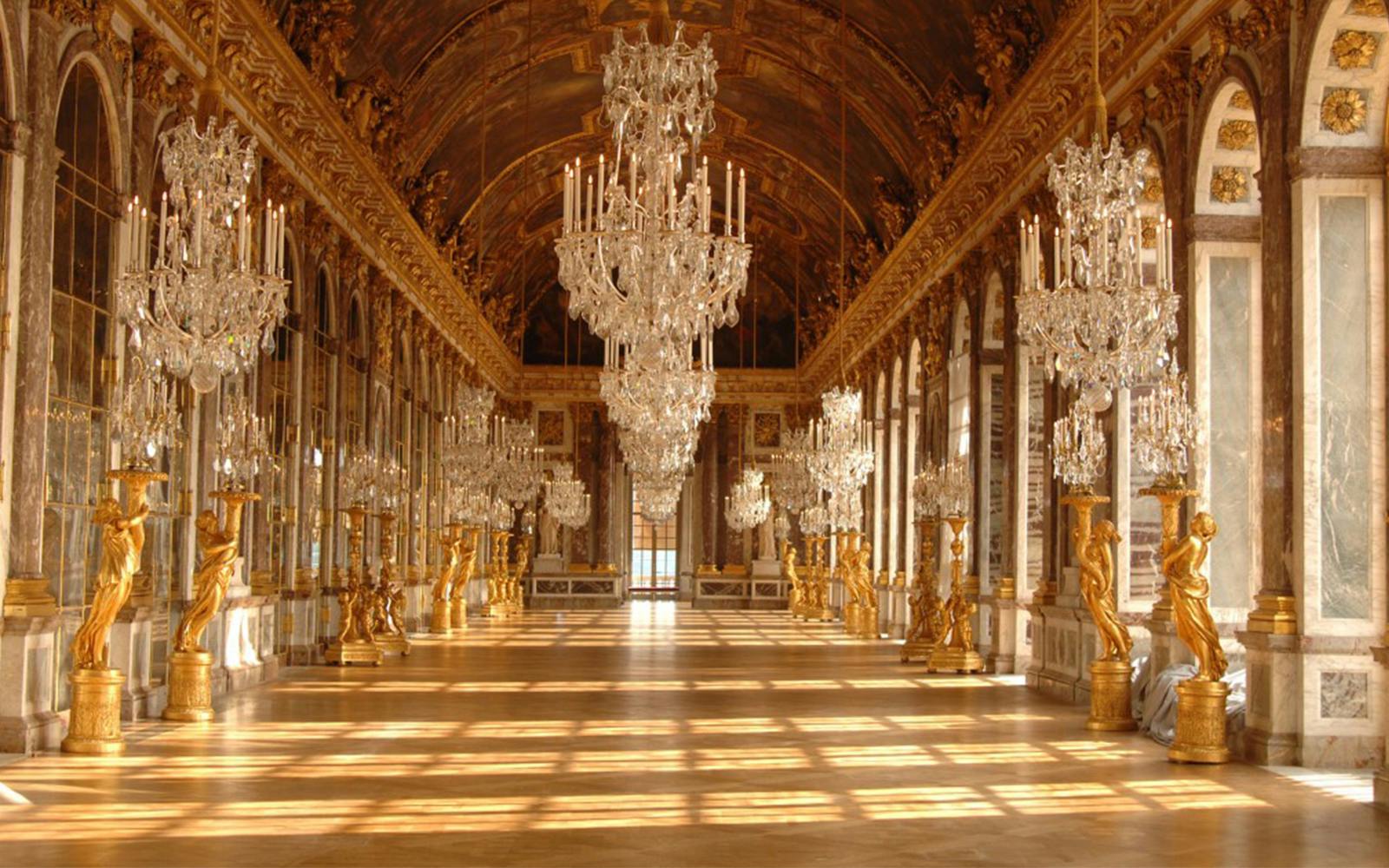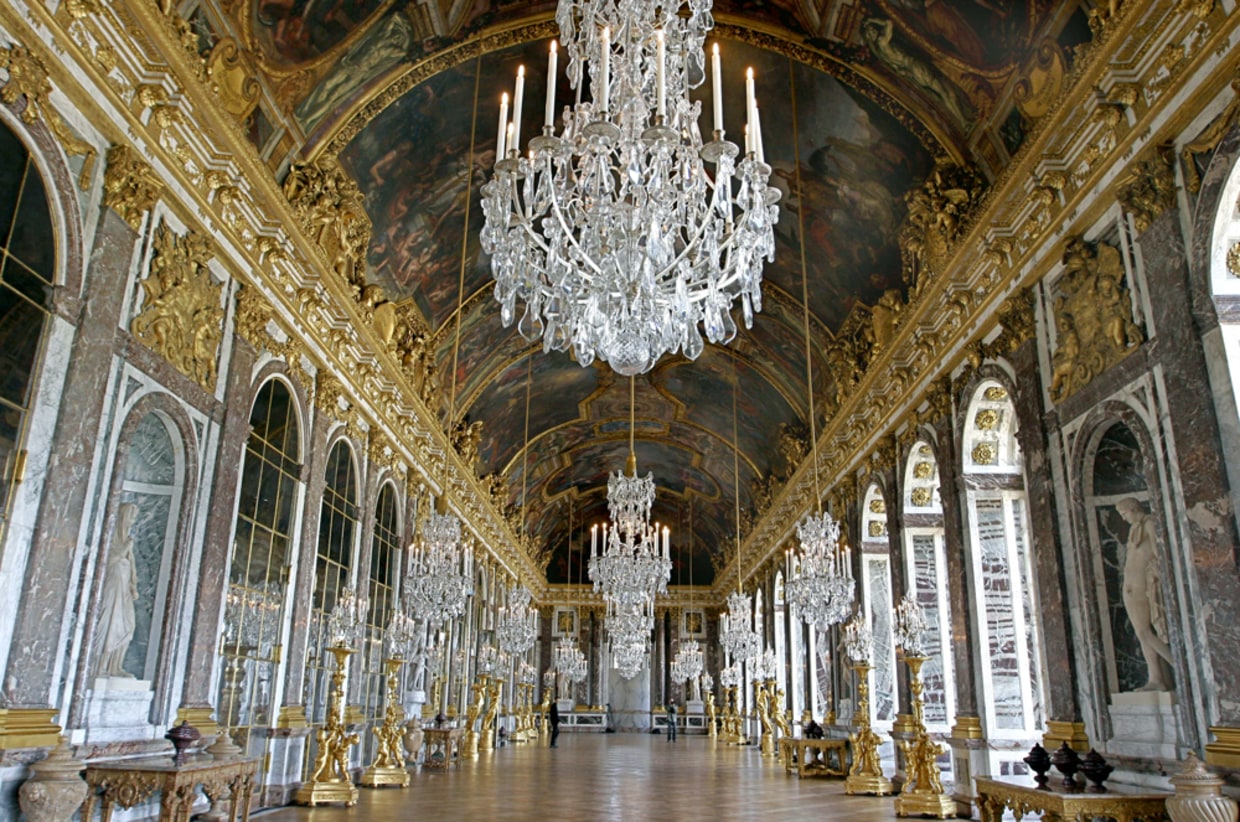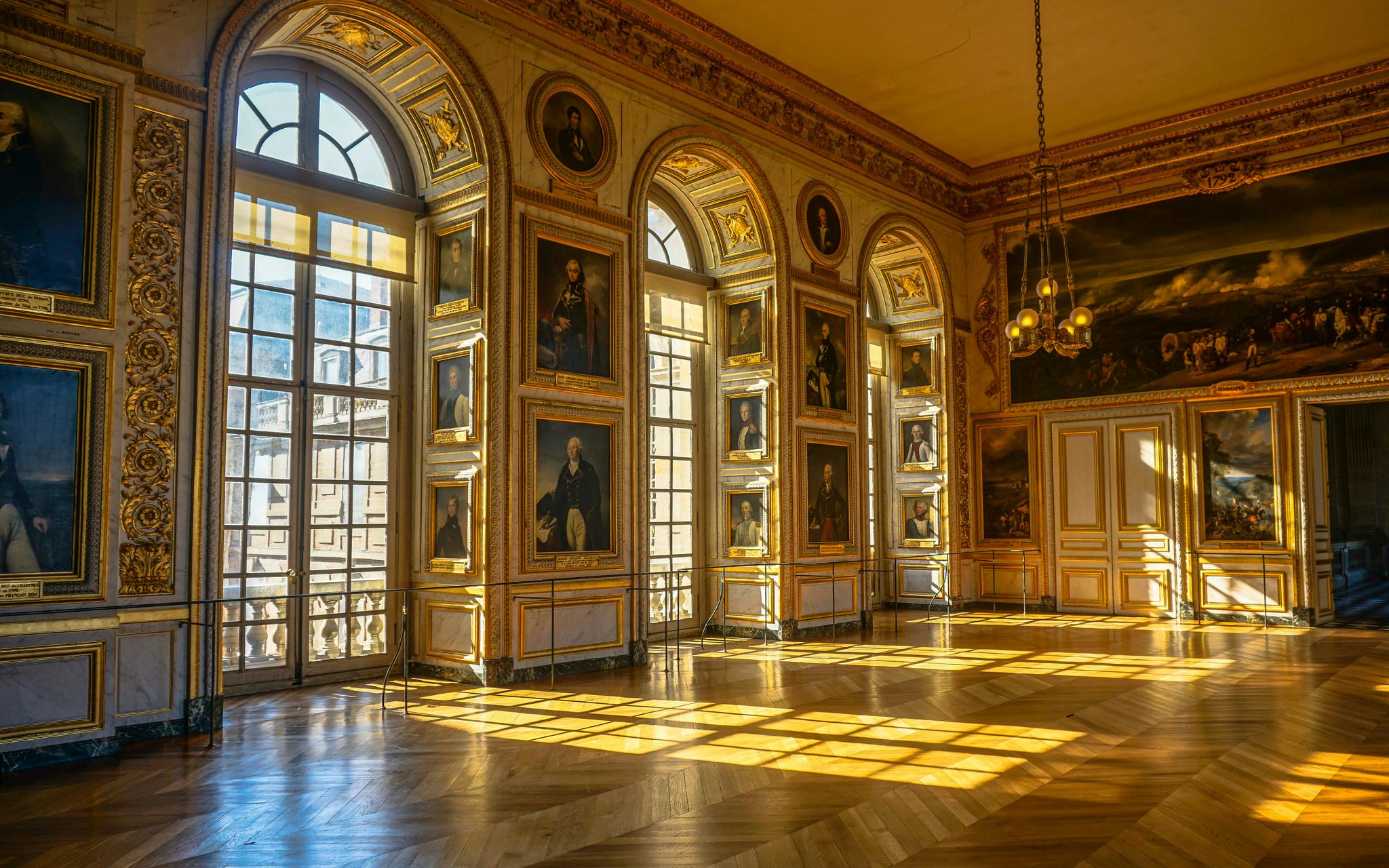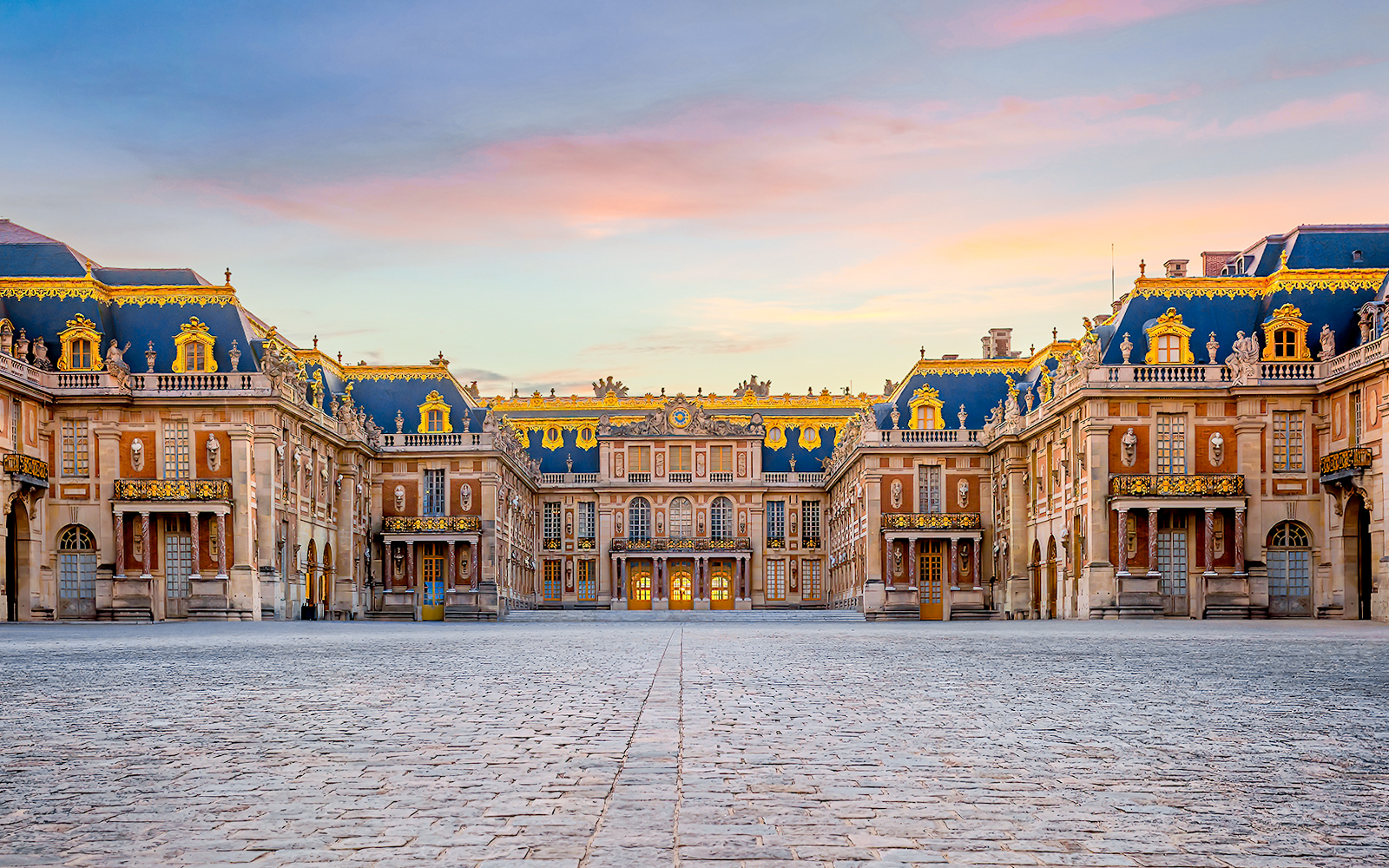The Hall of Mirrors (Galerie des Glaces) in the Palace of Versailles is one of the most breathtaking and historically significant rooms in the world. Designed to showcase the power and grandeur of King Louis XIV, it remains a masterpiece of French Baroque architecture and a witness to key moments that shaped history.
A Symbol of Royal Power and Prestige
The Hall of Mirrors was created to glorify the absolute monarchy of Louis XIV. Its design reflects the king’s vision of dominance, with grand gilded sculptures, marble walls, and a ceiling covered in paintings illustrating his military victories.

One of its most dazzling features is the mirrored arches, which reflect the light streaming in from tall windows, creating an effect of endless splendor. At a time when mirrors were a rare luxury, their presence in such abundance symbolized France’s artistic and economic superiority.
A Stage for Diplomacy and Ceremony
Beyond its beauty, the Hall of Mirrors was a political tool. Foreign ambassadors, including those from the Ottoman Empire, Persia, and Siam, were led through the gallery in a display of French power and sophistication. Royal ceremonies, such as the wedding of Louis XVI and Marie Antoinette, took place here, reinforcing alliances between European powers.

The Hall of Mirrors and World History
Centuries later, this room became the site of one of the most pivotal moments in modern history—the signing of the Treaty of Versailles, which ended World War I. The grandeur that once symbolized absolute monarchy now became the setting for a new world order.

A Timeless Masterpiece
Today, the Hall of Mirrors stands as a testament to France’s rich history, attracting visitors from around the world. Its shimmering elegance and deep historical significance make it not just an architectural marvel, but a living symbol of power, diplomacy, and artistic excellence.


